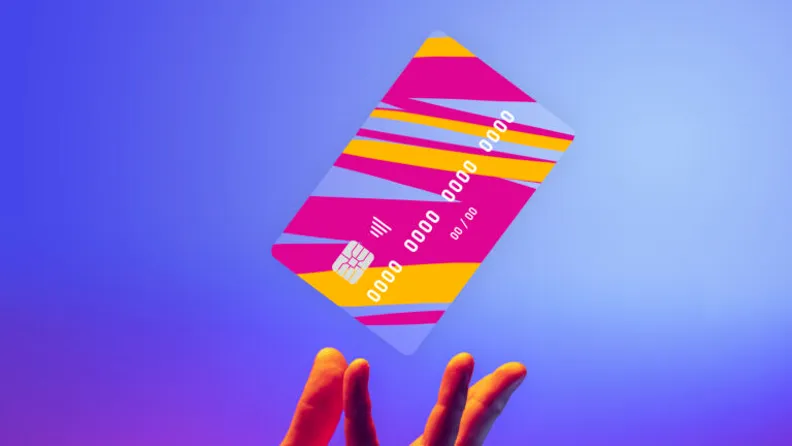A credit score is a three-digit number that measures how responsible you are in managing your money and paying down your debt. These scores are generated from information contained in your credit report, so you must have a credit history before you can get a credit score.
Can you improve your credit score if you have limited or no credit history? Yes, you can, but first it’s important to understand how credit scores work.
- A credit score is a three-digit number that measures how responsibly you manage your money and pay down your debt.
- A credit score is calculated using information from your credit report and different credit scoring models may apply.
- Everyone’s credit score starts out different, although the minimum credit score is 300.
- When you have no credit history, the best ways to quickly improve your credit score include becoming an authorized user, opening a secured credit card, or getting a small loan in your name.

How credit scores work
Credit scores don’t appear in a vacuum but are calculated using different credit scoring formulas. 90% of top lenders use the FICO credit scoring model when making credit decisions. VantageScore is another credit scoring model.
Both models use information contained in your credit report to calculate your credit score. A credit report contains detailed information about your past financial history, including:
- Number of credit accounts you have in your name
- The balances and payment history of these accounts
- New credit application inquiry
- Public records, including judgments, bankruptcy and foreclosure proceedings
If you have no credit history, you may not have much information on your credit report. This, in turn, can make calculating your credit score difficult. According to the Consumer Financial Protection Bureau, an estimated 45 million Americans are “credit invisible,” meaning they don’t have sufficient credit history to generate a score.
Having no credit history at all does not equate to bad credit, which means you have a lower credit score due to past financial missteps.
Where does your credit score start?
Having no credit history doesn’t necessarily mean your credit score starts from scratch. This is because the FICO and VantageScore credit models are not that low. Instead, the minimum credit score you’ll get is 300 points, no matter which model you use. The highest score is 850 points.
If you have no credit history at all, you may not have a credit score. Once you start building and improving your credit, your score can start at 300 and gradually increase. So what affects your credit score?
In short, it depends on the credit scoring model. Because lenders most commonly use FICO scores, here’s a closer look at how these scores are calculated:
- Payment History: 35% of your FICO score is based on payment history, and paying on time can help improve your score, while paying late can hurt your score.
- Credit Utilization Ratio: 30% of your FICO score is based on your credit utilization ratio, which is the amount of available credit you are using at any given time.
- Age of credit: 15% of your FICO score is determined by the age of your credit, which is how long you have used your credit.
- Credit mix: 10% of your FICO score depends on the type of credit you use, such as a revolving line of credit or an installment loan.
- Credit Checks: 10% of your FICO score depends on how often you apply for new credit, so a strict credit check is required.
You can visit AnnualCreditReport.com to get a free copy of your credit report, which can tell you whether there is enough information to generate a credit score.
The fastest way to build credit
Improving your credit score without a credit history can be difficult. Still, there are several ways to build credit from scratch, and some of them can pay dividends faster than others. If you want to build credit quickly, here are some of the best ways to do it.
Become an authorized user
Authorized users have permission to use another person’s credit card but are not responsible for the debt. Becoming an authorized user allows you to restore someone else’s good credit history and start building credit immediately.
The account will appear on your credit report as well as the credit report of the original account holder. As long as they practice good credit habits (such as paying on time and keeping card balances low), their good account history will be reflected on your credit report.
Being an authorized user is different from sharing a joint credit card account, where both of you are equally responsible for the card balance.
Apply for a secured or credit-builder card
Secured credit cards are designed for people with bad credit or no credit. These cards usually require a cash deposit to open, which acts as your credit limit. As you make purchases, your credit limit decreases. When you pay your bill each month, you free up available credit.
If you want to build credit quickly with a secured card, the easiest way is to make your payments on time. Remember, payment history is most important to your FICO credit score. If you always make your payments on time, you’ll start to see positive changes in your credit score in just a few months.
Try a store credit card
Most store credit cards only offer reload privileges at the card-issuing store and its brand or partner, and work like other credit cards, although they may be easier to get approved for than traditional credit cards. Some may even offer shopping incentives.
However, you need to pay attention to the annual percentage rate (APR) and credit limit. Because store credit cards may have lower credit requirements for approval, they may charge a higher APR, which means carrying a balance on these cards may cost you more money each month. And a lower credit limit means you can draw out your card quickly, leading to a higher credit utilization ratio that lowers your credit score.
Get rent and utility credit
Rent and utility bills aren’t automatically factored into your credit score calculation, but there are services that can help you factor them in so you can build credit faster. For example, Experian Boost is a free service that can help improve your credit score by reporting on utility bills, phone bills, and streaming service charges. According to Experian data, the average user’s FICO 8 credit score increased by 13 points as a result.
Experian Boost also includes free credit score monitoring to help you track changes in your credit score over time.
If you don’t already have a credit card or loan, this service might be worth considering. Remember, any credit score changes related to Experian Boost will only be reflected in your FICO 8 version score. Since lenders can use multiple versions of FICO to evaluate credit, if a lender checks something other than FICO 8 when you apply for a loan, you may not see much benefit from having those payments reported to your credit history.
What is a good credit score?
A good credit score varies depending on which model you use. A good FICO credit score ranges from 670 to 739. A credit score below this score is classified as fair or poor, while a credit score above this score is classified as very good or excellent.
What is a credit report?
A credit report is a collection of information about your financial history. Creditors report information to the credit bureaus, including the date new accounts were opened, new credit applications you submit, payment history and balances. This information is used to compile your credit report and credit score.
What’s the fastest way to improve your credit score?
The fastest ways to improve your credit score include paying your bills on time, becoming an authorized user, increasing your credit limit without increasing your balance, and paying off debt. However, keep in mind that it may take several months to see a significant improvement in your ratings.
Bottom line
Improving your credit score without a credit history may not be an easy task, but it’s worth the effort. The higher your credit score, the easier it is to get approved for a new loan or line of credit. A higher credit score can also lower interest rates, resulting in savings on borrowing costs. Taking steps to open a secured or retail card and becoming an authorized user are just a few ways you can quickly start building credit.



